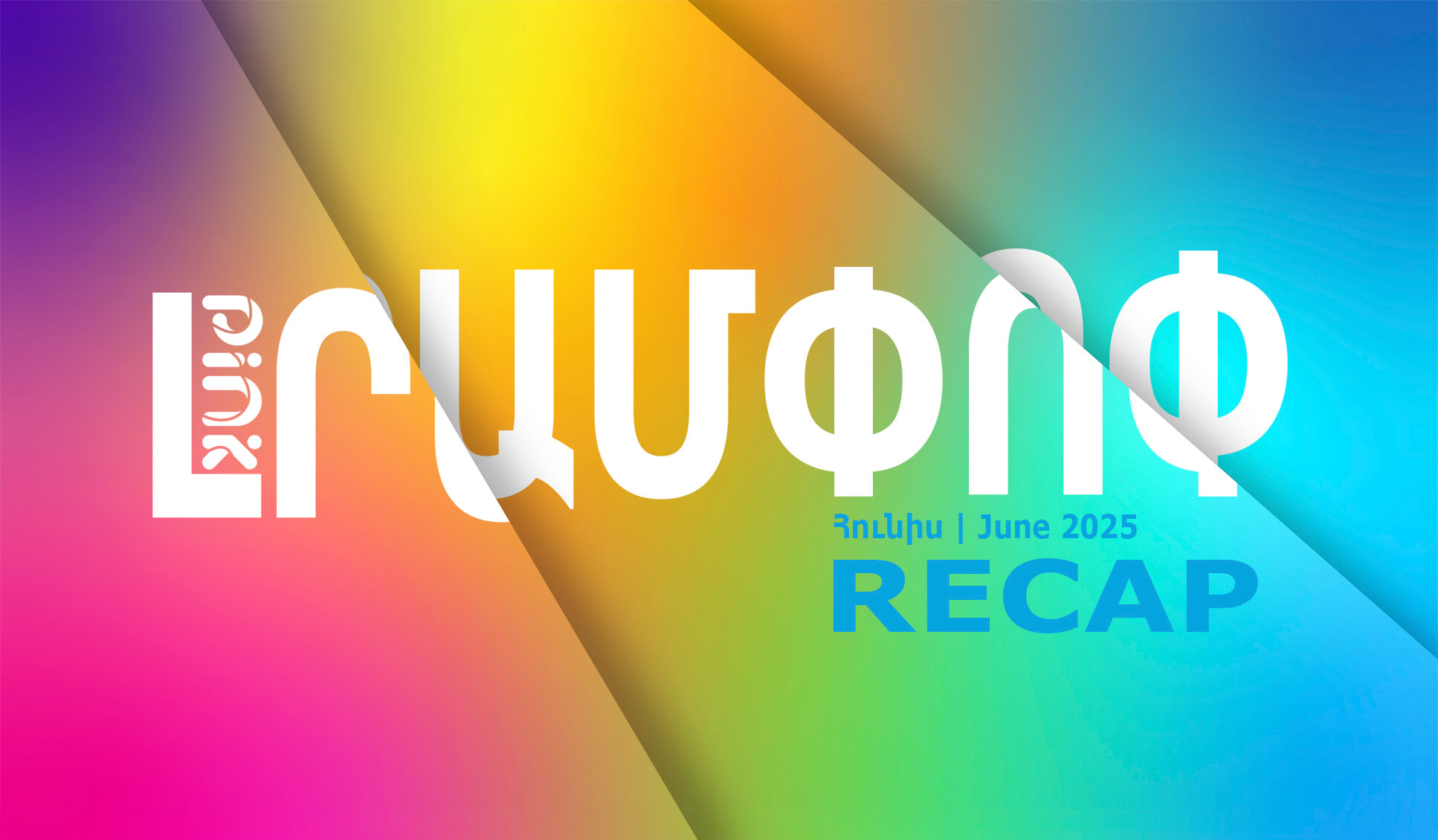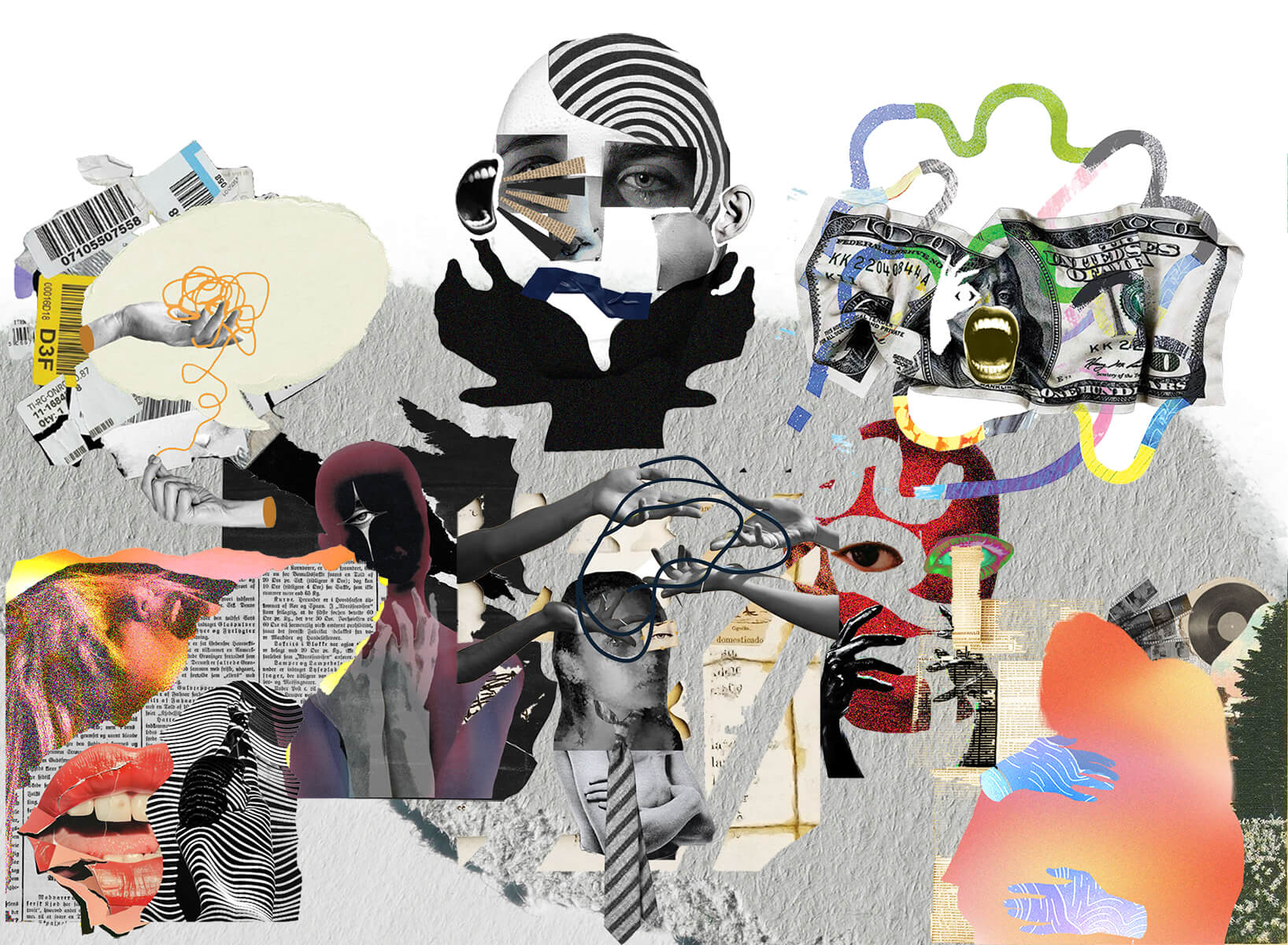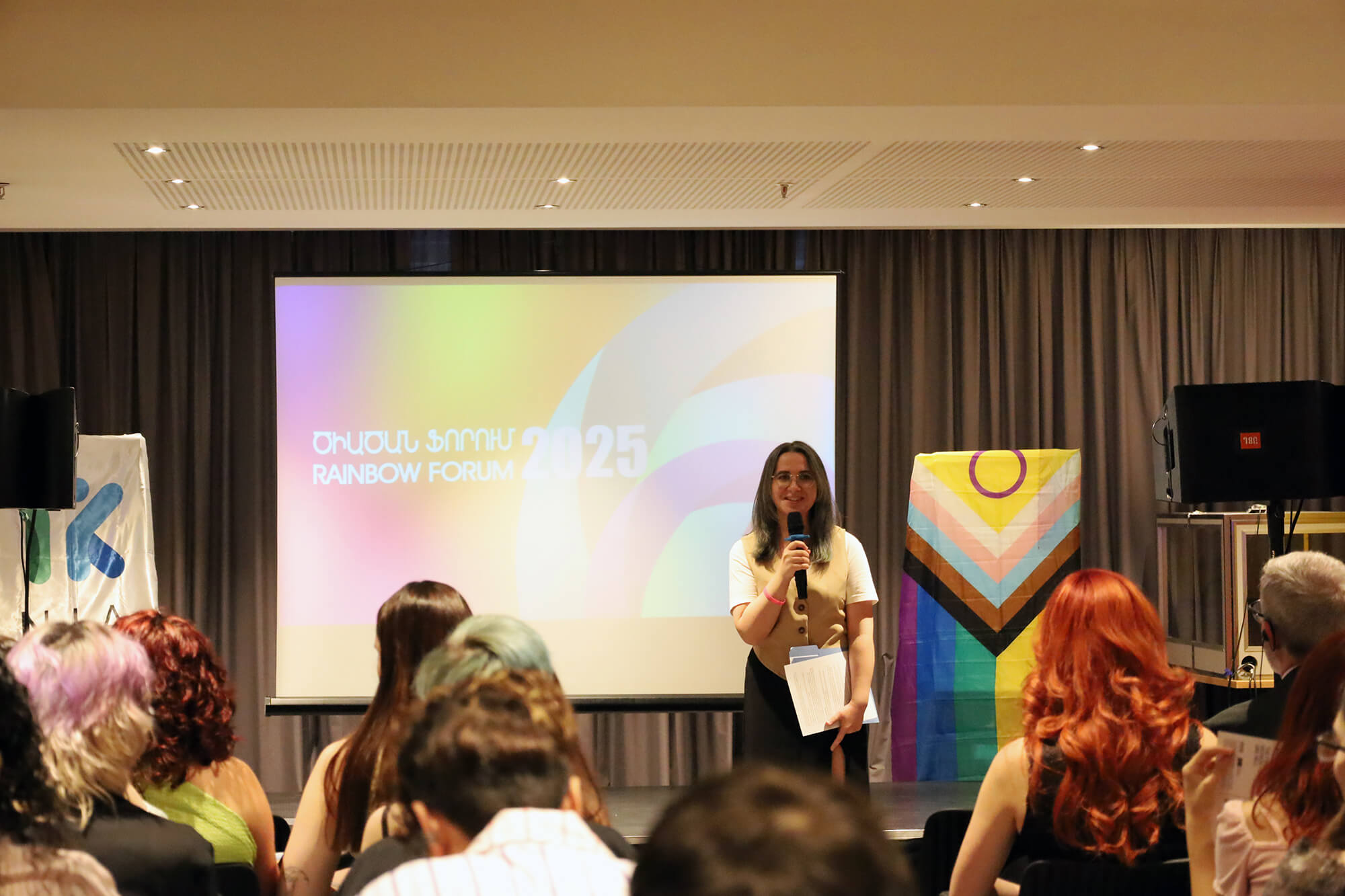“The human rights situation of LGBT people in Armenia” roundtable discussion
A roundtable discussion on “The Human Rights Situation of LGBT People in Armenia” was organized by “Pink” human rights defender NGO on November 16, 2021. The roundtable was attended by ambassadors of several countries, including the USA, The Netherlands, Sweden, Switzerland, the EU Ambassador to Armenia, and representatives of other international and local organizations.
 The event was kicked off by Pink’s chairperson, Lilit Avetisyan where highlighted the fact that the difficult period in Armenia during 2020 as a result of the war had its impact on issues of human rights protection. The uncertain situation in that period was accompanied with tensions, paving the way for the spread of misinformation, which has manifested itself in violence, intolerance against vulnerable groups, especially LGBT people, as well as various manipulations of these issues.
The event was kicked off by Pink’s chairperson, Lilit Avetisyan where highlighted the fact that the difficult period in Armenia during 2020 as a result of the war had its impact on issues of human rights protection. The uncertain situation in that period was accompanied with tensions, paving the way for the spread of misinformation, which has manifested itself in violence, intolerance against vulnerable groups, especially LGBT people, as well as various manipulations of these issues.
The main purpose of the roundtable discussion was to present Pink’s annual report, which summarized cases of human rights violations against LGBT people in Armenia in 2020. Examining these cases, we see that violence continues in various areas of LGBT people’s lives, from the family to public places. In this regard, it is important to note the importance of involving LGBT people, their allies, as well as government agencies, the international community, and civil society, as they can come up with strategies for raising issues and developing appropriate steps.
 The invited ambassadors presented their observations on the issue. Each of them raised a specific issue and mentioned the importance of taking necessary steps. The speech of the US Ambassador in Armenia was remarkable, where she presented the steps taken by the United States to protect the rights of LGBT people and stressed the importance of taking such steps in all countries. She stated that “It is often pointed out that the true test of the rule of law is how well a nation protects its most vulnerable populations, not only privileged. Today, LGBTQI+ persons remain far too vulnerable in many parts of the world. It’s not a matter of LGBTQI+ community members seeking special human rights; they only want the same rights as everyone else. They want to go to school safely, without harassment, obtain appointment without discrimination, and talk to doctors about their health without stigma”.
The invited ambassadors presented their observations on the issue. Each of them raised a specific issue and mentioned the importance of taking necessary steps. The speech of the US Ambassador in Armenia was remarkable, where she presented the steps taken by the United States to protect the rights of LGBT people and stressed the importance of taking such steps in all countries. She stated that “It is often pointed out that the true test of the rule of law is how well a nation protects its most vulnerable populations, not only privileged. Today, LGBTQI+ persons remain far too vulnerable in many parts of the world. It’s not a matter of LGBTQI+ community members seeking special human rights; they only want the same rights as everyone else. They want to go to school safely, without harassment, obtain appointment without discrimination, and talk to doctors about their health without stigma”.
The Ambassador of the Kingdom of The Netherlands in Armenia expressed his concern about the necessity to legalize marriages for LGBT people. In 69 countries around the world, including Armenia, same-sex marriage is considered a violation of the law, which indicates that there are many gaps in the field of human rights.  The Ambassador of Switzerland in Armenia also touched upon this issue, noting that same-sex marriages should not be illegal. He condemned all forms of violence against LGBT people and called for steps to be taken to prevent them. “All over the world, LGBTI people continue to face violence and discrimination due to their sexual orientation and gender identity. It is important to recall that public recognition of LGBTI rights has a real impact on people’s lives. Events like this can help them and to create an environment of accepting their identities and expressions”.
The Ambassador of Switzerland in Armenia also touched upon this issue, noting that same-sex marriages should not be illegal. He condemned all forms of violence against LGBT people and called for steps to be taken to prevent them. “All over the world, LGBTI people continue to face violence and discrimination due to their sexual orientation and gender identity. It is important to recall that public recognition of LGBTI rights has a real impact on people’s lives. Events like this can help them and to create an environment of accepting their identities and expressions”.
The Ambassador of the Kingdom of Sweden presented his country’s support for the human rights protection of the LGBT community, especially Pink Human Rights Defender NGO. He referenced the importance of the NGO sector in general and in the development of democracy in Armenia. “Sweden has decided to initiate collaboration with a number of civil society organizations, one of them being Pink Armenia, through the project “Advancing the movement through sustainable development”, which aims the protection of the rights of LGBTQI people. Certainly and naturally, civil society plays a very vital and important role in the democratic transformation in Armenia. In my country, Sweden, we’re committed to creating an enabling environment for civil society, fostering a vibrant, independent and pluralistic civil society, and supporting society as an integrative part of support to our other development objectives, and here we consider Pink’s role as highly important being an independent watchdog organization towards the government and its various institutions”.
The observations of the Ambassador of the EU Delegation to Armenia were also interesting, who particularly mentioned that the problems of LGBT people are universal and that they should not be differentiated. ’’I think it is extremely important to touch on the sensitive issues of the human rights of everybody. It is not to single out a group, it is not what they often tell us in the European Union – that we are promoting gay rights; it is not about promoting, but about demanding to respect the rights of each and everybody. And this means naturally also LGBTQI+ rights to have the same access to education, medical care and treatment without stigmatization and without being singled out.’’
In their speeches, the ambassadors expressed their support for vulnerable groups, including LGBT people, noting that they along with their organizations are guided by respect for human rights, regardless of sexual orientation, gender identity, race, as such discrimination makes groups more vulnerable, and in Armenia such a model of society does not meet the standards of democracy. The most important of the strategies singled out by the ambassadors were to achieve changes in the legislation and to achieve a discourse free of aggression with the society. They expressed hope that next year’s report would show that the human rights situation of LGBT people has improved during this period, and that serious cases have been prevented to some extent.
 Referring to the annual report, it should be noted that Pink Human Rights Defender NGO collects and records cases of violence and violations on the basis of sexual orientation and gender identity (SOGI) on an annual basis through its lawyers, psychologists and social workers. During the discussion, Pink’s lawyer, Luiza Vardanyan, presented the brief summary of cases recorded through 2020-2021. In particular, it was mentioned that in 2020 most of the violations recorded by Pink were cases of domestic violence. These were accompanied by psychological, physical and economic violence․ Upon finding out about the victim’s sexual orientation or gender identity, their family members insulted and threatened them, resorted to conversion therapy, deprived them of communicating with the community, as well as communication modes such as mobile phone and the internet.
Referring to the annual report, it should be noted that Pink Human Rights Defender NGO collects and records cases of violence and violations on the basis of sexual orientation and gender identity (SOGI) on an annual basis through its lawyers, psychologists and social workers. During the discussion, Pink’s lawyer, Luiza Vardanyan, presented the brief summary of cases recorded through 2020-2021. In particular, it was mentioned that in 2020 most of the violations recorded by Pink were cases of domestic violence. These were accompanied by psychological, physical and economic violence․ Upon finding out about the victim’s sexual orientation or gender identity, their family members insulted and threatened them, resorted to conversion therapy, deprived them of communicating with the community, as well as communication modes such as mobile phone and the internet.
There have been cases of illegal publication of data on a person’s private life, both by the police and the media, despite the fact that this information should have only been accessible to law enforcement forces. Based on all this, it should be noted that it is a big problem for LGBT people in Armenia to resort to law enforcement forces, as they are afraid of leaking personal data and being discriminated against by law enforcement bodies. It was only 20 out of the 40 reported cases where LGBT individuals filed a report with law enforcement forces, but none of these reached the court review stage․ Most of the time these cases are delayed for years or terminated.
A part of the village was passed to Azerbaijan, and discussions were ongoing about when there was violence against activists and LGBT people in the village, law enforcement agencies, local and international human rights organizations as well as the international community were fully concentrated on it, but when the village was handed over to the enemy, they did not respond. As a result of all this, LGBT people were once again targeted by hate speech.
 During the roundtable discussion, after Pink’s lawyers presented their reports, we had a video call with Victor Kundrak, OSCE/ODIHR Hate Crimes Specialist, who presented a report on hate crimes in Armenia. He noted that hate speech is common throughout the world, but in Armenia hate speech often precipitated hate crimes against LGBT people. Additionally, many of these crimes were not properly investigated by law enforcement authorities. Because law enforcement authorities did not even record those cases, OSCE received information about the incidents of hate crimes much later than expected. In his speech, he also mentioned that cooperation with human rights NGOs is crucial to solve these problems: ’’Authorities should also look at hate crime victim support, and in that relation and most importantly, they should be encouraged to work closely with civil society organizations like Pink Armenia who hold unique expertise in the area and have outreach to direct victims and effect on entities.’’
During the roundtable discussion, after Pink’s lawyers presented their reports, we had a video call with Victor Kundrak, OSCE/ODIHR Hate Crimes Specialist, who presented a report on hate crimes in Armenia. He noted that hate speech is common throughout the world, but in Armenia hate speech often precipitated hate crimes against LGBT people. Additionally, many of these crimes were not properly investigated by law enforcement authorities. Because law enforcement authorities did not even record those cases, OSCE received information about the incidents of hate crimes much later than expected. In his speech, he also mentioned that cooperation with human rights NGOs is crucial to solve these problems: ’’Authorities should also look at hate crime victim support, and in that relation and most importantly, they should be encouraged to work closely with civil society organizations like Pink Armenia who hold unique expertise in the area and have outreach to direct victims and effect on entities.’’
Pink’s executive director, Vaghinak Ter-Hovhannisyan, summed up the roundtable discussion by concluding that the cases of violence and violations on the basis of SOGI are increasing year by year. They are manifested in various forms: physical, psychological and economic violence (particularly by family or relatives), threats of violence, illegal disclosure of personal data, expulsion from work or education on the grounds of sexuality and spreading hate speech, etc. Violations are on the rise, but LGBT people are reluctant to turn to law enforcement because there is a lack of trust towards them. Violations and harassments are not investigated, and they are not punished properly. Despite the fact that the Criminal Code changes over time, it still does not serve its purpose in the case of crimes based on SOGI.
With this in mind, Pink is constantly appealing to the government, law enforcement, private and international organizations to take steps to protect human rights in various public spheres to prevent crimes against LGBT people. In particular, governmental and law enforcement agencies should have appropriate qualifications to condemn harassment, regulate hate speech, and committed crimes on these bases, as well as develop anti-discrimination legislation.
At the end of the meeting, Pink’s staff presented the guidelines published by the organization, which are intended for specialists, in particular, doctors, psychologists and social workers working with LGBT people. The guideline meets current standards, and is updated according to the relevant changes in the scientific and professional field. The guide is available both online and in print.
Summing up the roundtable discussion on crimes against LGBT people in 2020, we can conclude that the number of cases of violence and hate speech against LGBT people in Armenia is growing. In many cases, these crimes are not reported because there is no clear law or guidance on how law enforcement agencies should handle such incidents. The victims are afraid of facing discrimination and the illegal misuse of their personal data by law authorities. As a result, there are many cases which were reported years after the incidents took place and remain unsolved because there are no clear discrimination laws.




